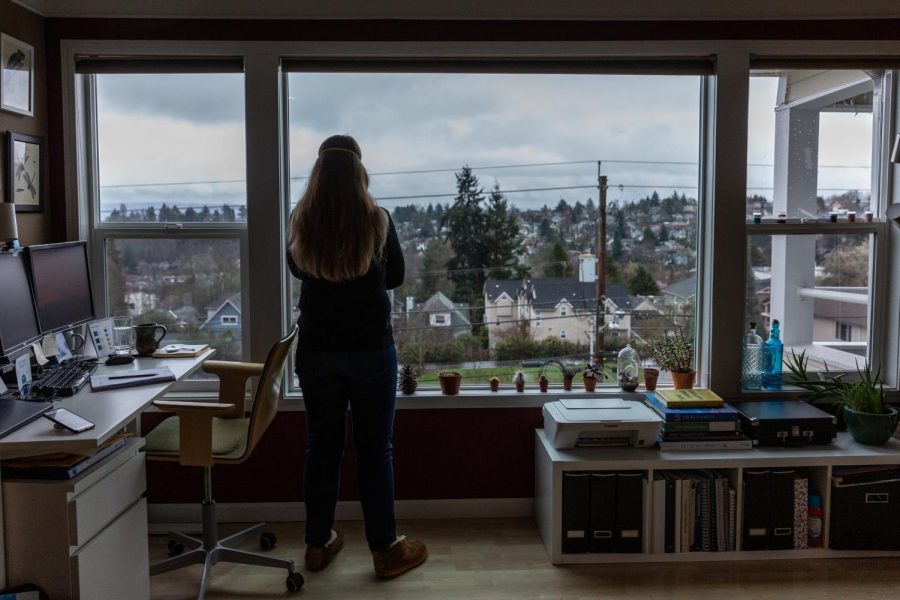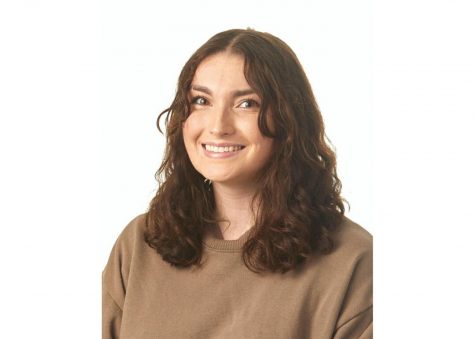UWL students talk self-quarantine
March 24, 2020
The University of Wisconsin-La Crosse has moved the remainder of the semester to online coursework and many people are partaking in self-quarantine due to COVID-19. As of Monday, March 23, “Wisconsin Gov. Tony Evers ordered Wisconsinites to stay in their homes starting this week to slow the spread of the worldwide coronavirus pandemic.” This means that people should not leave their homes unless it is to go to essential places such as the grocery store, hospital and pharmacies. If a person does leave the house, they must practice social distancing and stay six feet away from other individuals. The Racquet Press spoke to students about self-quarantine and if they will be partaking in it or not and why they think it is important or not.
Meghan O’Connell: junior, double major in accounting and Spanish
O’Connell was studying abroad in Spain during the spring semester, which is a high-risk area for COVID-19 and “has the second-highest number of coronavirus infections of any European country, after Italy.” In early March, all nonessential travel programs were stopped, meaning all students in a study abroad program had to return to the U.S. for the remainder of their program. O’Connell arrived back in the U.S. on March 15. “It was really tough finding out my program was canceled. Saying goodbye to all of my amazing friends I had made was the hardest part. It really sucks going from having so many plans about what you’re going to do while you’re abroad to being told you have to leave the country within the next week,” said O’Connell.
“The world would be more chaotic than it is now, and I don’t want to see that happen. Therefore, I am staying inside and I hope that everyone else is. It may seem like one person can’t help the spread of the virus, but if everyone has that attitude the virus will get much worse soon,” said O’Connell. “I think it is really important to be in quarantine right now. It really does help stop the spread of the virus, because if everyone has coronavirus now, there wouldn’t be enough beds in the hospital to help cure everyone.”
“I have been looking forward to studying abroad ever since I was in high school learning Spanish, and was so excited to start my journey abroad back in January. I’ve learned so much during my two months in Cadiz, and I know I would’ve learned so much more if I would have been there for the entire six months. I’m not going to lie, there were a lot of tears when I was told my program was canceled. It’s hard to be living the dream abroad and then coming home to live with your parents and being stuck inside in quarantine but, there’s nothing that I can do about it, so I have to keep moving on and continue studying Spanish,” she said.
O’Connell will be taking the rest of her classes online for the remainder of the semester. “My classes are still in Spain time, so I have to wake up at 5 a.m. every morning to take my first class. The rest of the day I talk on the phone with my friends, watch a TV show, cook food, or just talk with my parents.”
Anthony Rizzo: sophomore, biochemistry major
When asked if he thinks it is important to self-quarantine Rizzo said, “It’s really important to self-quarantine to stop the spread of the virus in your area. When I am in quarantine, I will probably watch Disney plus and working out in my house.”
Rizzo transferred to UWL from UW-Parkside in the Spring 2020 semester, making it his first semester at UWL. Rizzo was a resident in Reuter Hall and had already moved out of the residence hall on March 19. “I think living at home for the rest of the semester is a bummer, but it is the right thing to do in the end. Being a transfer student I’m feeling a little disappointed how it turned out, but I can’t blame the university for taking precautions,” said Rizzo.
Rizzo said about classes being online for the rest of the semester, “It just kinda sucks having classes online because it can be troubling for students who may not have access to the Internet or technology, as well as professors who don’t normally teach online classes.”
Tessa Schwinn: freshman, international business major
When asked if Schwinn will be partaking in self-quarantine she said, “No, but I will be trying to avoid situations with a lot of people in public. While I am home I will be watching Netflix, working on school work and spending time with family.”
“I believe it is important to self-quarantine to an extent because the coronavirus is so fast-spreading I think it is important to avoid spreading it but at the same time it is important to work and be active,” said Schwinn.
Schwinn was a resident in Eagle Hall and is moving out within the following weeks. When asked about her feelings about the remainder of the semester being online she said, “I am prepared, but at the same time I am slightly nervous. It will be harder to focus at home. I am unsure how my classes will go doing labs online.”
Vincent Alcala: sophomore, microbiology major
Alcala will not be partaking in self-quarantine because he works in the healthcare field. “I’m only a data entrist at G.I. Associates, but I’ve got a part to play in getting people the care they need and they’re not going to stop needing gastrointestinal procedures. I’ll be working there as long as they let me for the time being,” said Alcala. “This will be pretty much the only thing I’ll be doing outside of my house besides running for groceries, though. All the other activities I usually do with my friends will be much the same, just moved online.”
When asked about his thoughts about classes being online for the remainder of the semester Alcala said, “My thoughts on the rest of the semester being online are grim, I’m in two labs and an art class this semester. How do I learn skills at the lab bench when there’s no way for me to physically practice them? How will my painting class go since UWL is closing access to most campus buildings and now most of my art supplies and artwork are locked away? I have a whole laundry list of problems with this, and I am sure most people do, but as unfortunate as it may be from a public health standpoint it’s for the best.”
“For those who can I believe it’s important to self-quarantine. Limiting exposure and spread is just about the best we can do until we develop a vaccine or drug treatment, and self-quarantine is a tool we can use to accomplish this,” said Alcala.







